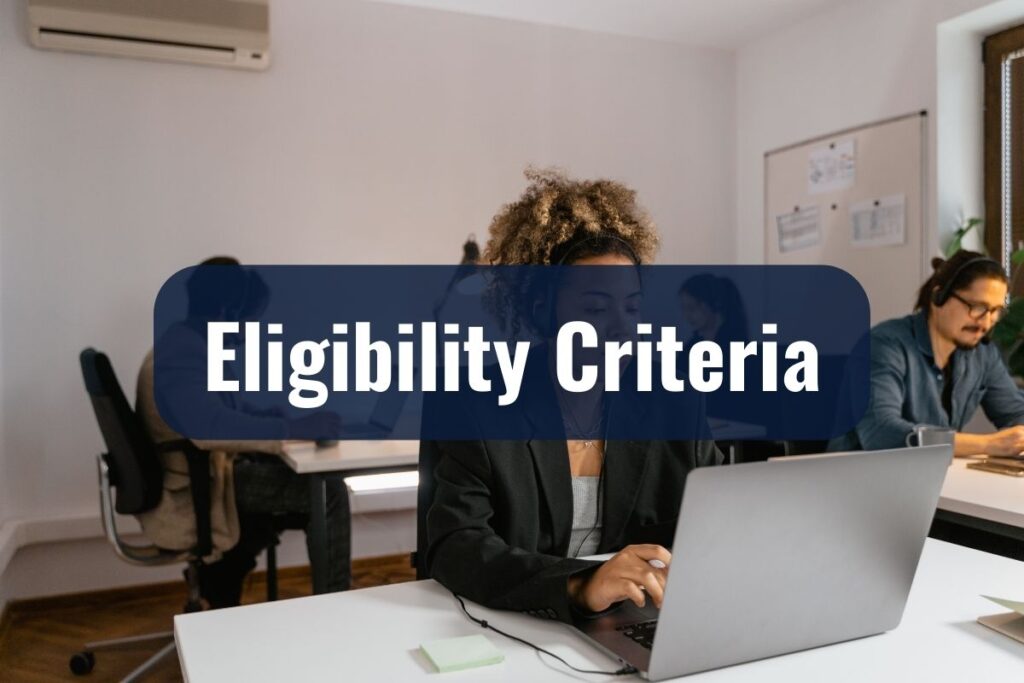The Netherlands, with its prosperous economy, open-minded culture, and strategic location in Europe, is an enticing destination for many foreign professionals. Yet, while the allure of the Dutch landscapes, culture, and professional opportunities beckon, one essential component demands thorough comprehension: the Dutch work permit system.
For any foreign individual considering or already on the path to getting a work permit in The Netherlands, understanding the intricacies of the process is crucial. This guide aims to be a trusted companion in that journey, shedding light on the procedures, rights, obligations, and finer nuances of securing the right to work in this vibrant nation.
Key Takeaways:
- The Netherlands offers diverse work permits tailored to varied professional needs.
- Employers play a significant role in the work permit process, from sponsorship to adherence.
- Work permit holders are granted both specific rights and bear certain obligations.
- Challenges in the work permit process, while present, are manageable with the right resources.
- Numerous authoritative resources exist to guide applicants seamlessly through the process.
Types of Work Permits in The Netherlands
It’s essential to identify and understand each work permit type, as the distinction plays a crucial role in the application process, the validity period, and the associated rights. Below, we delve into the predominant types of work permits available in The Netherlands:
Single Permit (GVVA)
A unique feature of the Dutch immigration system, the Single Permit (GVVA) combines the residence and work permit into a solitary document. Designed for those who intend to work for more than three months, this permit simplifies the bureaucratic process, eliminating the need to apply for two separate permissions. However, certain professions and circumstances might be exempted from the GVVA, and one must be diligent in ensuring its applicability.
Highly Skilled Migrant (KMR) Permit
The Netherlands, with its forward-looking industries, often beckons professionals possessing specific skills and expertise. Recognizing this, the Highly Skilled Migrant (KMR) Permit was instituted. This permit is earmarked for qualified professionals who have been offered a position that requires advanced skills and knowledge. It is imperative to note that the prospective employer must be recognized by the Dutch Immigration and Naturalisation Service, and salary thresholds, adjusted annually, apply to these applications.
European Blue Card
Modeled after the U.S. Green Card system, the European Blue Card serves as a testament to Europe’s integrated approach to skilled immigration. It targets highly educated foreign nationals seeking employment within the European Union. Applicants must possess a binding job offer or an active work contract and meet specific educational or professional criteria. The European Blue Card offers additional privileges, including mobility within the EU member states.
Seasonal Work Permit
Certain industries, such as agriculture or tourism, often experience heightened demand during specific periods. Catering to this, The Netherlands offers a Seasonal Work Permit, which allows foreigners to engage in short-term employment in these particular sectors. It’s worth highlighting that the duration of this permit is limited to a maximum of 24 weeks within a calendar year.
Eligibility Criteria

Recognizing the right work permit type is just the initial step; one must also ensure they meet the eligibility criteria specific to each permit type. Presented below is a detailed outline of the general and specific criteria pertinent to various work permits:
General Eligibility Criteria
Applicable to most work permit types, these criteria provide a foundational layer of requirements:
- Valid Passport: An applicant must possess a valid passport that remains valid for at least six months beyond the planned stay.
- Health Insurance: Proof of adequate health insurance covering your stay in The Netherlands is mandatory.
- Antecedents Certificate: Often, an applicant might be required to submit a certificate affirming they have no criminal records that could pose a threat to public order or national security.
- Integration Exam (if applicable): Certain applicants might be required to pass a basic Dutch language and integration exam.
Specific Criteria for Each Type of Work Permit in The Netherlands
Single Permit (GVVA)
- Employment Contract: The applicant must have a signed employment contract with a Dutch employer or an employer based in The Netherlands.
- Non-applicability of EU/EEA and Swiss nationals: Employers should first try to recruit employees from this region before considering third-country nationals.
- Salary Requirements: Depending on the age and type of job, specific salary requirements might be in place.
Highly Skilled Migrant (KMR) Permit
- Recognized Sponsorship: The Dutch employer must be a recognized sponsor by the Dutch Immigration and Naturalisation Service.
- Salary Thresholds: There are specific minimum gross monthly salary requirements, which are periodically updated and vary based on the applicant’s age.
- Education and Expertise: Proof of the necessary qualifications, certifications, or degrees that justify the ‘highly skilled’ designation.
European Blue Card
- Higher Education: Must have completed a higher education program of at least three years. Proof, usually in the form of a degree or diploma, is required.
- Work Contract: A binding work contract or job offer from a Dutch employer for at least one year.
- Salary Requirements: The gross annual salary must meet or exceed a specified threshold, adjusted annually.
Seasonal Work Permit
- Specific Sector Engagement: Proof of engagement in sectors identified for seasonal work, such as agriculture.
- Duration Limit: The work contract should clearly state that the employment does not exceed 24 weeks in a calendar year.
Related: Minimum Wage in The Netherlands [Complete 2023 Guide]
Application Process
The work permit application process in The Netherlands, while comprehensive, is rooted in clarity and precision.
Determine the Correct Work Permit Type
Before any formal application, it is vital to ascertain the correct work permit type tailored to your professional circumstances and aspirations, as elucidated in the previous sections.
Collation of Required Documents
Thorough preparation ensures a smoother application process. Gather all essential documents, such as:
- Valid Passport.
- Proof of health insurance.
- Employment contract or binding job offer (whichever is applicable).
- Certifications, degrees, or qualifications, based on the permit type.
- Antecedents certificate or any other document showcasing good conduct.
Application Form Completion
Acquire the appropriate application form, either online or from relevant governmental offices. Ensure accurate and truthful completion of every section. Any discrepancies or omissions can result in delays or denial.
Application Fee Payment
There is a non-refundable application fee associated with most work permit applications. The amount varies depending on the type of permit. Ensure you pay the accurate amount, as fees are subject to periodic changes.
Submission
Submit the application and all supporting documents to the designated authority. Depending on the type of work permit, this could be the Dutch Immigration and Naturalisation Service (IND) or the Employee Insurance Agency (UWV).
Await Evaluation
Once submitted, the application enters a review phase. The processing time varies but typically ranges from a few weeks to several months, contingent on the permit type and the volume of applications at the time.
Communication from Relevant Authorities
Upon completion of the review, the relevant authority will issue a decision and communicate the same to the applicant. In some cases, further information or documents might be requested.
Collection or Issuance
If approved, the applicant will be instructed on the next steps. This often involves visiting a specific office to collect the permit or, in some cases, the permit may be sent to the applicant’s registered address.
Reporting Changes
Post-approval, it’s paramount to inform the relevant Dutch authorities of any significant changes, such as change of address, job position, or marital status, during the work permit’s validity.
Role of Employers in the Work Permit Process

Understanding the responsibilities and obligations that befall employers is crucial to ensure the seamless integration of foreign talent into the Dutch workforce. Below, we meticulously explain the multifaceted role of employers in this intricate process.
Recognized Sponsorship: For certain work permit categories, such as the Highly Skilled Migrant (KMR) Permit, the prospective employer must be recognized by the Dutch Immigration and Naturalisation Service (IND) as a sponsor. Achieving this recognition underscores the employer’s credibility and commitment to lawful practices.
Labor Market Test: Before considering non-EU/EEA or non-Swiss nationals for a position, employers are obligated to prove that they have made genuine efforts to fill the vacancy with candidates from within the EU/EEA or Switzerland. This involves advertising the position locally and verifying the availability of suitable talent within this region.
Employment Contract and Conditions: Employers must ensure that the foreign employee’s terms of employment are in accordance with Dutch labor laws and standards. This encompasses aspects like minimum wage, working hours, and other fundamental rights.
Application Submission (in certain cases): For specific permits, such as the Single Permit (GVVA), it is the employer who initiates and submits the application on behalf of the foreign employee to the relevant authorities.
Record Keeping: Post successful issuance of a work permit, employers are mandated to maintain meticulous records of the foreign employee. This includes copies of the work permit, passport, employment contract, and other pertinent documents. These records must be readily available for potential inspections by Dutch authorities.
Notification of Changes: Should there be significant alterations in the foreign employee’s role, contractual terms, or if the employment terminates, the employer must promptly notify the Dutch authorities of such changes.
Financial Liability: In certain scenarios, especially in cases where the foreign employee does not fulfill certain obligations, the employer might be held financially responsible. It is thus essential to be conversant with the potential liabilities associated with hiring foreign nationals.
Ensuring Compliance and Avoiding Sanctions: Employers found in contravention of the regulations—be it hiring foreign nationals without the appropriate permits or not fulfilling their stipulated obligations—can face severe sanctions, including hefty fines.
Rights and Obligations of Work Permit Holders
The acquisition of a work permit in The Netherlands is not just a mere bureaucratic approval; it heralds a symbiotic relationship between the permit holder and the Dutch state. This relationship is defined by certain rights granted to the permit holder and, reciprocally, obligations that the holder must fulfill.
Rights of Work Permit Holders
Employment: Permit holders have the unequivocal right to be employed in The Netherlands, within the confines of the specifics outlined in their permit, such as the type of job, sector, or duration.
Fair Treatment: Work permit holders are entitled to equal treatment in the workplace. This means receiving the same wages, benefits, and working conditions as Dutch nationals in similar roles.
Access to Services: Permit holders can access public services, social security benefits, and educational opportunities, subject to certain conditions and the type of permit.
Family Reunification: Under specific permits and conditions, work permit holders might have the right to bring their immediate family members to live with them in The Netherlands.
Change of Employment: In certain scenarios and with the appropriate permissions, permit holders can switch employers or job roles during their stay.
Long-term Stay and Permanent Residency: Depending on the type of work permit and the duration of stay, holders may be eligible to apply for permanent residency or even Dutch citizenship in the future.
Obligations of Work Permit Holders
Compliance with Work Specifics: Work permit holders must strictly adhere to the employment specifics outlined in their permit. This includes the type of job, sector, and duration of employment.
Reporting Major Changes: Any significant change in personal circumstances, such as marital status, address, or employment, must be promptly reported to the relevant Dutch authorities.
Adherence to Dutch Laws: Permit holders are obligated to respect and abide by all Dutch laws, not just those related to employment.
Valid Documentation: It is the responsibility of the permit holder to ensure that their work permit and associated documents, like passports, remain valid throughout their stay.
Integration Requirements: Depending on the duration of stay and the type of permit, some holders might be required to undertake integration courses or pass specific exams to demonstrate basic proficiency in the Dutch language and understanding of Dutch society.
Financial Independence: Work permit holders must ensure that they can sustain themselves financially without being a burden on the Dutch social welfare system.
Related: Best Banks in The Netherlands: How To Open An Account In 2023
Common Challenges and Solutions

Navigating the intricacies of securing and maintaining a work permit in The Netherlands, while rooted in a transparent system, can occasionally present challenges. Presented below is an analytical overview of some common challenges, accompanied by solutions.
Challenge: Many applicants find the documentation process intricate, leading to oversights or omissions.
Solution:
- Engage in meticulous preparation by creating a comprehensive checklist of required documents.
- Consider consulting with legal or immigration experts who specialize in Dutch work permits.
Challenge: The predominance of Dutch in official communications and forms can be daunting for non-Dutch speakers.
Solution:
- Utilize official English translations of application forms and guidelines, often provided by Dutch authorities.
- Enroll in basic Dutch language courses, enhancing not only comprehension but also integration.
Challenge: Delays in application processing can lead to uncertainties and disrupted plans.
Solution:
- Ensure that the application is complete and accurate in the first instance, reducing the chances of it being returned or queried.
- Plan well in advance, providing ample time for potential delays.
Challenge: Certain criteria, such as salary thresholds or specialized skills, might prove challenging for some applicants.
Solution:
- Continuously update one’s professional qualifications and skills, aligning with the demands of the Dutch labor market.
- Engage in negotiations with potential employers to meet requisite conditions, like salary benchmarks.
Challenge: The necessity to undergo integration exams or courses might be perceived as an added layer of complexity.
Solution:
- Approach integration as an opportunity for holistic immersion rather than a mere obligation.
- Leverage resources, both online and offline, that prepare aspirants for integration exams.
Challenge: Job roles, contracts, or employer conditions might change, potentially jeopardizing the work permit’s validity.
Solution:
- Establish open communication with employers, ensuring clarity on contractual terms and any impending changes.
- Be proactive in seeking extensions or modifications to the work permit if employment conditions alter.
Related: New To The Netherlands: Everything You Need To Know (2023)
Additional Resources
- Dutch Immigration and Naturalisation Service (IND): The official portal of IND is a reservoir of information on various types of work permits, eligibility criteria, application procedures, and more.
- Employee Insurance Agency (UWV):
For specific work permits, the UWV is the primary authority. Their website provides nuanced insights into employer obligations and permit nuances. - The Dutch Chamber of Commerce (KVK): A crucial resource for those considering entrepreneurship or self-employment in The Netherlands. It provides guidance on business regulations, registrations, and more.
- ACCESS: A non-profit organization dedicated to supporting expatriates in The Netherlands. They offer a plethora of resources, workshops, and advisory services.



